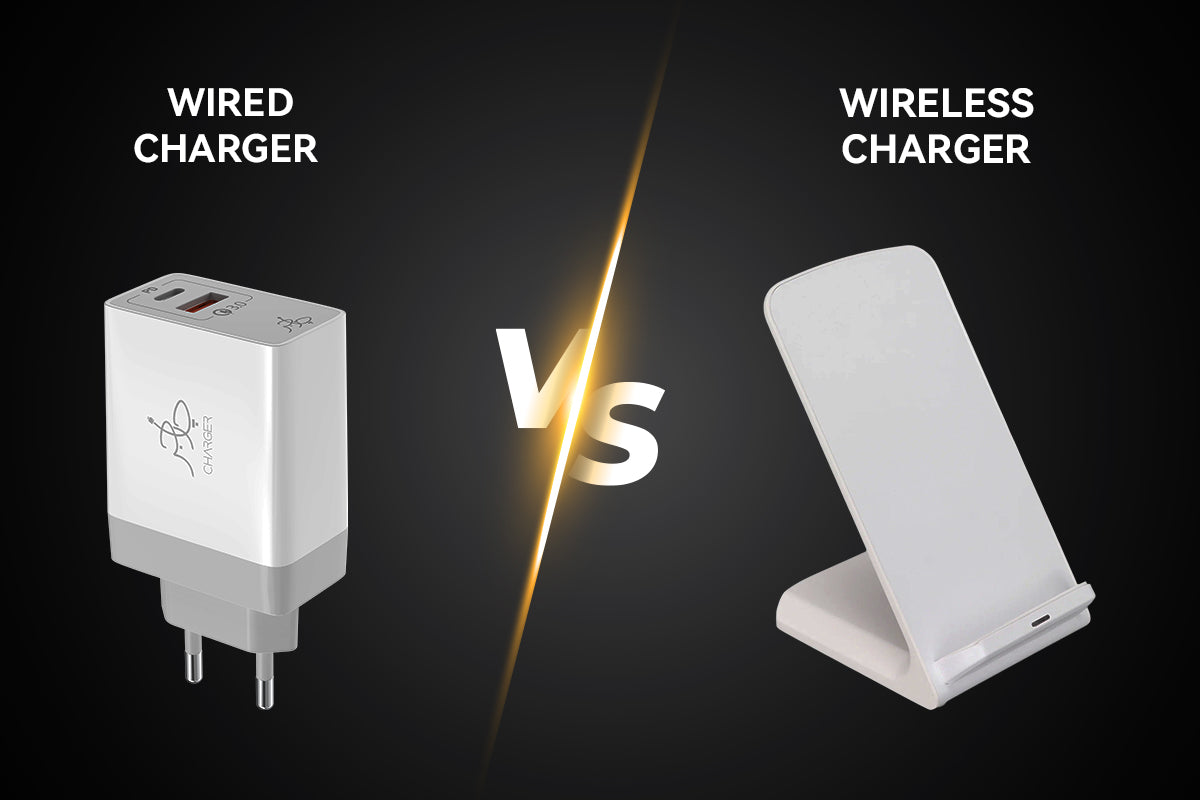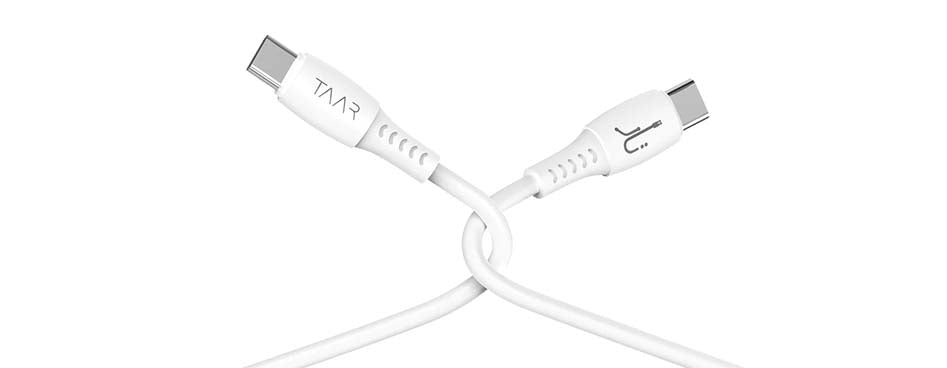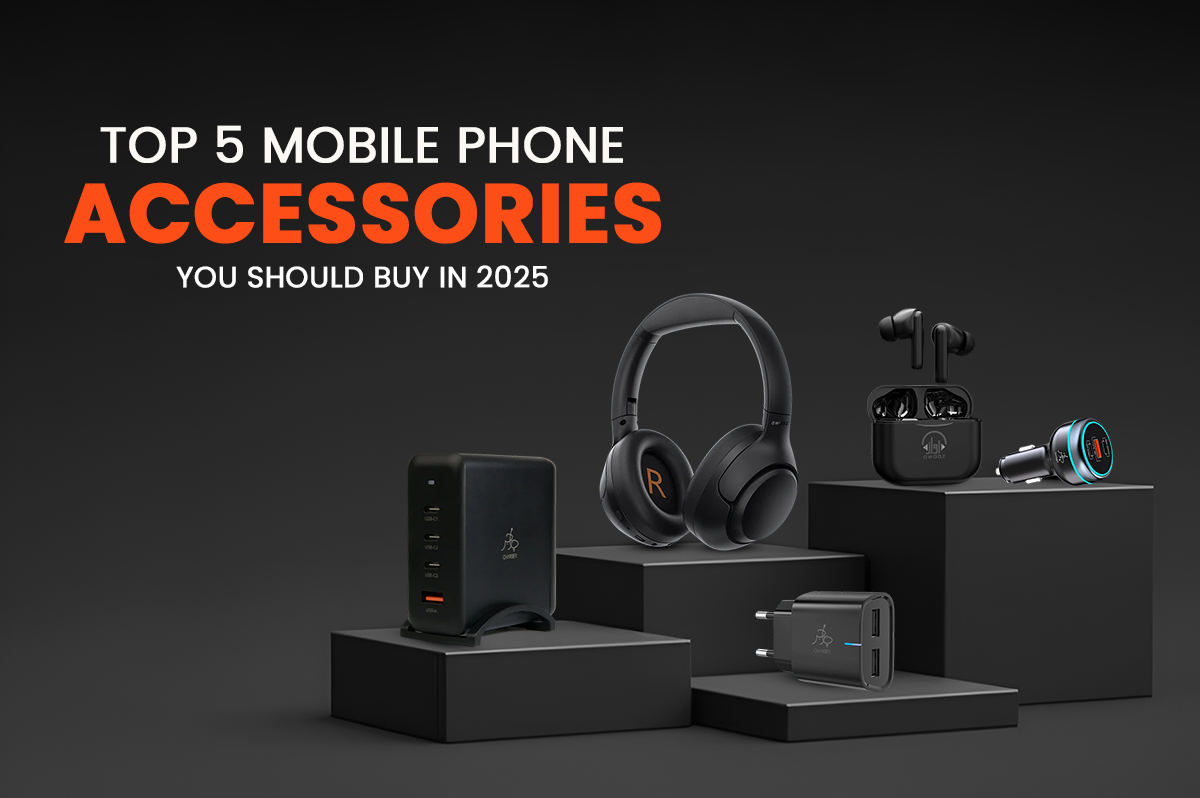Smartphones have become our lifelines, and with them comes the daily ritual of charging. In recent years, wireless charging has gained popularity as a modern alternative to traditional wired charging. But which one is better for speed, convenience, and long term use? Let’s break down the pros and cons to help you decide which method fits your lifestyle.
How Wired Charging Works
Wired charging is the standard method that most of us are familiar with. You plug in a cable, usually USB-C or Lightning and electricity flows directly into your phone’s battery.
Advantages of Wired Charging:
- Faster speeds: Most wired chargers support fast charging (18W, 25W, 65W, or higher), allowing you to charge your phone in under an hour.
- Reliable connection: Minimal energy loss and fewer interruptions compared to wireless.
- Universal compatibility: Almost every smartphone supports wired charging, even if wireless isn’t available.
Drawbacks:
- Cables wear out over time and may fray.
- Port damage can occur with frequent plugging and unplugging.
- Less convenient if you’re multitasking or moving around.
How Wireless Charging Works
Wireless charging uses Qi technology, which transfers power through electromagnetic fields between a charging pad and your device. You simply place your phone on the pad with no cables required.
Advantages of Wireless Charging:
- Convenience: Just set your phone down, no fiddling with cables.
- Less wear and tear: No risk of damaging charging ports.
- Modern ecosystem: Many cars, cafes, and offices in Pakistan are adopting wireless charging spots.
Drawbacks:
- Slower speeds: Most wireless chargers offer 7.5W–15W, which is significantly slower than fast wired charging.
- Heat generation: Wireless pads can make devices warmer, which may affect battery health over time.
- Position sensitivity: Your phone must stay aligned on the pad to charge properly
Speed: Wired Wins
If speed is your top priority, wired charging is the clear winner. High speed charging technologies can top up 50% of your battery in as little as 20–30 minutes. Wireless charging, while improving, still lags behind especially for heavy users who need quick power-ups during the day.
Convenience: Wireless Takes the Lead
On the other hand, if you prefer ease of use, wireless charging shines. Simply placing your device on a pad reduces wear on charging ports and makes charging more seamless in offices, bedrooms, and public spaces.
Battery Health Considerations
Both methods have an impact on battery health, but the effects depend more on charging habits than the technology itself.
- Fast wired charging can generate heat, but modern smartphones are designed to manage it safely.
- Wireless charging also produces heat, especially with prolonged use, which can affect long-term battery efficiency.
To maximize battery lifespan, avoid overcharging and try to keep your battery level between 20%–80%.
Which Should You Choose?
- If you need fast, reliable charging for busy days — stick with wired.
- If you value convenience and modern setups — go for wireless.
- Many users in Pakistan prefer a hybrid approach: wired at home or for fast charging, wireless at night or in the office for easy top-ups.
Final Thoughts
There’s no one-size-fits-all answer in the debate of wireless charging vs wired. It depends on whether you prioritize speed or convenience. For many users, having both options is the best way forward.
At the end of the day, it’s about choosing the method that matches your lifestyle and staying connected with Taar for insights on the future of smartphone technology.
Frequently Asked Questions
1. Is wireless charging safe for my phone?
Yes. Wireless charging uses Qi-certified technology, which is safe. Just make sure you use branded, certified chargers.
2. Does wireless charging drain battery health faster?
Not necessarily. Both wired and wireless charging generate heat, which can affect battery health. Using high quality chargers reduces risks.
3. Can I use my phone while it charges wirelessly?
You can, but it’s less convenient since you must keep it on the pad. Wired charging allows easier use while charging.
4. Do all phones support wireless charging?
No. Only devices with built-in Qi support can use wireless charging. Many mid-range and flagship models now include it.
5. Wired vs Wireless Charging: Which is Better?
Wired charging is faster and more efficient; wireless is slower but offers convenience and less port wear.
6. Does wireless charging good for battery?
Yes, wireless charging is safe, but extra heat may slightly affect battery health compared to wired charging.
7. Why do people like wireless charging?
People like it for convenience, no cables, reduced port damage, and clean, clutter-free charging setups at home.





Leave a comment
This site is protected by hCaptcha and the hCaptcha Privacy Policy and Terms of Service apply.